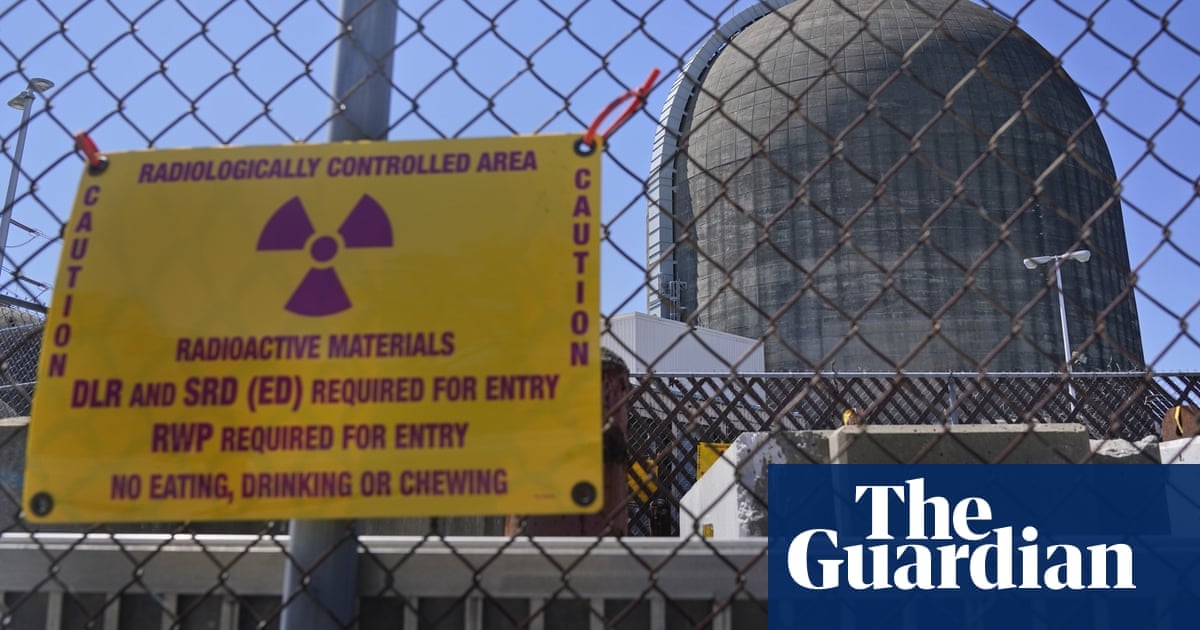- cross-posted to:
- nyc@lemmit.online
- cross-posted to:
- nyc@lemmit.online
Shuttering of New York facility raises awkward climate crisis questions as gas – not renewables – fills gap in power generation
When New York’s deteriorating and unloved Indian Point nuclear plant finally shuttered in 2021, its demise was met with delight from environmentalists who had long demanded it be scrapped.
But there has been a sting in the tail – since the closure, New York’s greenhouse gas emissions have gone up.
Castigated for its impact upon the surrounding environment and feared for its potential to unleash disaster close to the heart of New York City, Indian Point nevertheless supplied a large chunk of the state’s carbon-free electricity.
Since the plant’s closure, it has been gas, rather then clean energy such as solar and wind, that has filled the void, leaving New York City in the embarrassing situation of seeing its planet-heating emissions jump in recent years to the point its power grid is now dirtier than Texas’s, as well as the US average.



There’s a legitimate argument that we can’t grow our way out of climate change, and the real solution to our emissions problem is degrowth and descaling of our obscene rates of consumption. In that sense, had they been closing the plant with the expectation of drastically reducing energy demand, it might have made sense.
Its not as though nuclear energy produces no waste, just extremely low levels of CO2 waste. But if you’re just going to replace energy demand (and continue to grow energy supply) with new coal/gas consumption, who are you fooling except yourselves?
I really hate this kind of reasoning. Even if we do manage to reduce our energy consumption, closing the nuclear plant would still be more harmful to the environment because we could have closed fossil fuel plants instead. Unless, of course, we’d manage to reduce energy consumption so much that we wouldn’t need any non-renewable energy sources - which I don’t think is very realistic assumption. Certainly not realistic enough to make such a gamble on.
The only way closing the nuclear plant would have been beneficial to the environment would be if the act of closing it would have caused a reduction in our energy consumption that is greater than the energy the plant itself was producing (minus some extra energy from fossil fuel plants that take up its “emission budget” to increase their own energy production). Which is also quite unrealistic. I actually think it makes more sense that it achieved the opposite effect, since closing the plant took up activists’ effort and environmental publicity, which could have been used to push for reducing consumption instead.
At some point you have to acknowledge nuclear power (particularly from planes dating back to the 60s/70s) as their own waste problem.
And you can try to address this waste with more modern clean up techniques. Or you can decommission these old plants. But just waiting for derelict facilities to crumble, on the ground that “Nuclear Good / FF Bad” means another generation of Fukushima like events that drive people further from nuclear as a long term solution.
That’s not a legitimate argument because the West combined emits less CO2 than just China. The economy of the West is growing, but emitting less carbon because of more green power sources, one of which being nuclear
A lot of that is still the Wests carbon, just because our products and materials are now coming from China doesn’t mean we are absolved from the responsibility of those emissions. This is why reduce was meant to be the biggest part of reduce, reuse, recycle, and this means degrowth.
Also the economy of the West is shrinking because of the depletion of easy to access fossil fuesl, despite renewables.
Another interesting article about one of the most polluting sectors, the steel industry. It explains that green power sources might mean more fossil fuels not less and it also talks about why China can’t adopt clean steel production to the same level we can.
Not even remotely true, per capita.
Because a lot of Chinese people still do sustenance farming. They don’t add to carbon, they actually might be carbon negative since they grow crops
That hasn’t been true in decades.
I’ve met them in Yunnan last year, lmao, you have no idea, you’ve never been to China so shut the fuck the up
It’s funny to hear folks call you a Wumao “never even been to China” in such short order.
It takes a lot of time and money to travel the world. But I’m sure you have an abundance of both, right? I certainly don’t, which is why I post Chinese Propaganda for a living.
You should not comment on things you don’t have basic knowledge of
Uh huh